
Angina is a pain, discomfort or tightness in the chest, when the heart receives a relatively less oxygen-rich blood. It is a type of chest pain and also known as angina pectoris. It is a probable symptom of a coronary artery disease (CAD). Angina is one of the most common problems for which people seek emergency medical assistance. A lot of people panic while they experience angina because it is associated with underlying heart condition or even a heart attack.
Angina is characterized by a feeling of heaviness, squeezing, tightness, pressure and burning behind the breastbone. Other common symptoms of angina include pain in the upper central abdomen, neck, back, shoulders and jaw. There might also be fatigue, heartburn, cramping nausea, sweating, dizziness and shortness of breath.
There are various types of angina- stable or chronic, unstable, variant and microvascular angina. It is caused most probably by a coronary artery disease or by narrowing of the arteries due to cholesterol or plague build up on the artery walls. Angina can be triggered due to several risk factors including high blood pressure, high cholesterol, excessive smoking, family history of cardiovascular diseases and a sedentary lifestyle.
Angina does not usually last longer than five to ten minutes. However, an angina must not be taken lightly as it can be a sign of future heart attack. A person who regularly experiences angina may use several home remedies to reduce or prevent angina.
There are several home remedies which can reduce or prevent angina. These are:
1. Garlic
Garlic is one of the most effective home remedies for overall health and minor heart problems. It is a rich source of minerals including phosphorus, calcium, and vitamins such as thiamine, niacin, vitamin C and riboflavin. Garlic also contains sulfur, chlorine and iodine in traces. It can combat several heart diseases, asthma, cough and phlegm. All these diseases can cause chest pain. Garlic lowers the cholesterol level and prevents the plague build-up in arteries of the heart. This improves blood flow to the heart.
How to use it:
- Add around half a teaspoon of garlic juice into a cup of hot water and drink it during chest pain for relief.
- Consume one to two cloves of garlic on an empty stomach each morning, with water.
- This would help in preventing future chest pain.
- Take a crushed garlic clove and add it to hot mustard oil. Apply this oil to chest and throat for relief in chest pain due to excessive coughing.
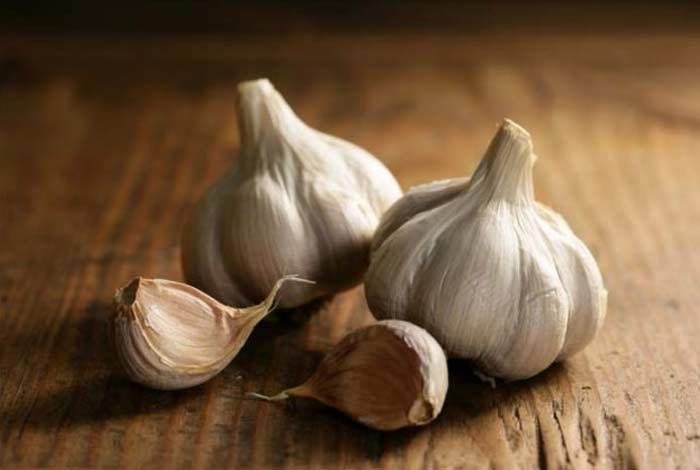
2. Ginger
Ginger is also a proven remedy since ancient times for normal chest pain, angina, various gastrointestinal issues, flu, cold, inflammation, vomiting and nausea. Gingerol is a chemical compound in ginger which reduces the cholesterol level. Garlic also prevents the blood vessels from being damaged by high cholesterol level owing to its anti-oxidant properties. It is best recommended for chest pain due to gas, bronchitis, heartburn and coughing.
How to use it:
- While suffering from angina or chest pain, drink a cup of ginger tea. Add grated ginger to a cup of boiling water. Cover and steep it for about five minutes. Strain the ginger tea and drink it.
- Consume a small piece of ginger on empty stomach to promote cardiovascular health.
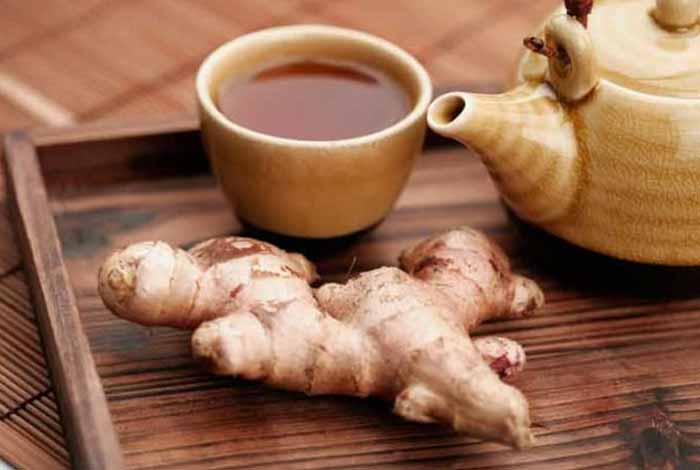
3. Turmeric
Turmeric has been long used as a spice in Asian cuisines. It is also used in ancient Chinese and Indian medicines to treat bruises, flatulence and angina and other chest pains. Turmeric has excellent anti-inflammatory properties due to its active ingredient, curcumin. It helps in reducing plague formation in arteries, chloroplast oxidation and clot formation in the heart. Turmeric is also an excellent source of vitamin B6, which reduces the risk of developing heart diseases.
How to use it:
- Always add turmeric powder while cooking dishes.
- Add half a teaspoon of turmeric to a glass of milk. Boil this milk and add a few drops of honey to it. A little amount of black pepper can also be added to this milk. Consume the milk while it is still warm enough.
- Take two tablespoon of apple cider vinegar and add equal amount of turmeric powder to it. Pour a cup of hot water into this mixture. Consume this mixture to relieve chest pain due to chest congestion.
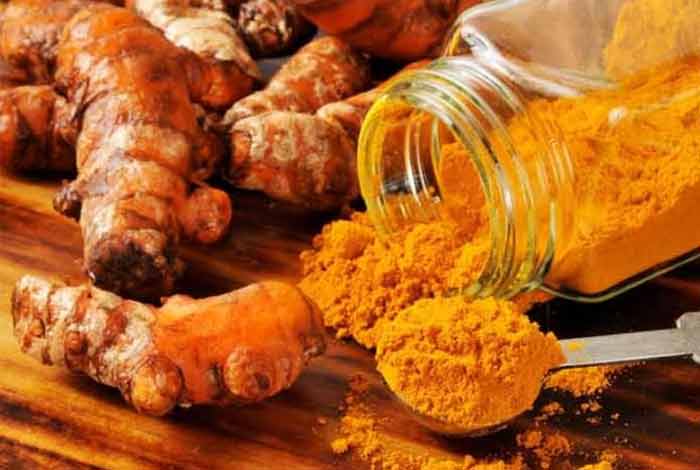
4. Holy Basil or Tulsi
Basil or tulsi is a very effective home remedy to reduce chest pain. It has both anti-microbial and anti-inflammatory properties. Eugenol is a chemical component present in the volatile oils of basil. Eugenol restricts the activity of an enzyme known as cyclooxygenase (COX) in your body. Basil reduces or subsides the inflammation and the pain due to inflammation. The magnesium present in the basil promotes blood flow towards the heart by relaxing the heart and its associated blood vessels. The presence of antioxidant vitamin A in basil reduces the cholesterol build-up in the blood vessels of the heart. Basil also relieves chest pain due to excessive coughing.
How to use it:
- Chew few basil leaves early in the morning.
- While having chest pain, chew around eight to ten basil leaves. Basil can also be consumed by extracting juice from a few basil leaves and adding a teaspoon of honey to it. This mixture can be consumed to reduce a chest pain.
- Boil around two cups of water with a few pieces of ginger and four to five basil leaves. Let this mixture boil till it becomes half of its original quantity. Add a teaspoon of honey to it. Drink this mixture to relieve chest pain due to cold and cough.
- Consume one teaspoon of fresh basil leaf juice along with equal quantity of honey daily on an empty stomach. This would prevent future chest pain and improve heart health.
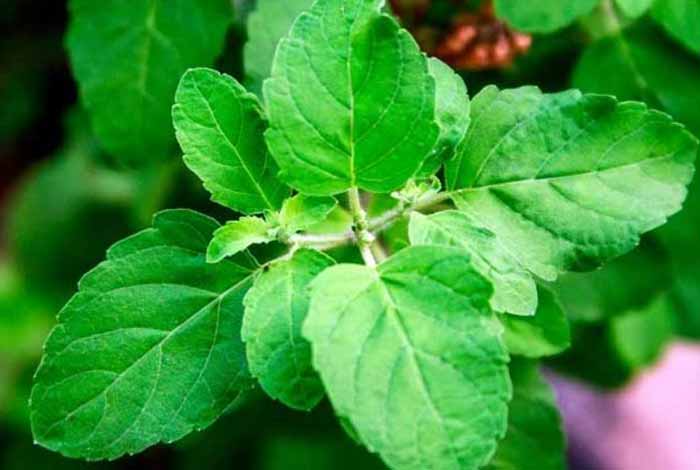
5. Alfalfa
Alfalfa is a very effective herb loaded with many vitamins and minerals. The vitamins include vitamin B, vitamin C, riboflavin, niacin, vitamin A, vitamin K and vitamin D and several others. Alfalfa is rich in xanthophyll and chlorophyll pigments. It also contains various amino acids, phytosterols, tannins, saponins, protein as well as high fiber content. Alfalfa is very effective in reducing angina by reducing plague build-up and cholesterol level. It promotes a smooth blood flow towards the heart. When consumed regularly, it prevents future incidences of angina. Alfalfa is also recommended for chest pain caused due to heartburn, acidity and gas.
How to use it:
- Take one teaspoon of dried alfalfa leaves. Add these dried leaves into a glass of warm water and let it infuse for around ten minutes. Strain the brew and consume it. Repeat this process twice a day.
- Add alfalfa to your salads and food daily.
- Take few alfalfa leaves and extract juice from them. Consume around one-third of this juice daily.
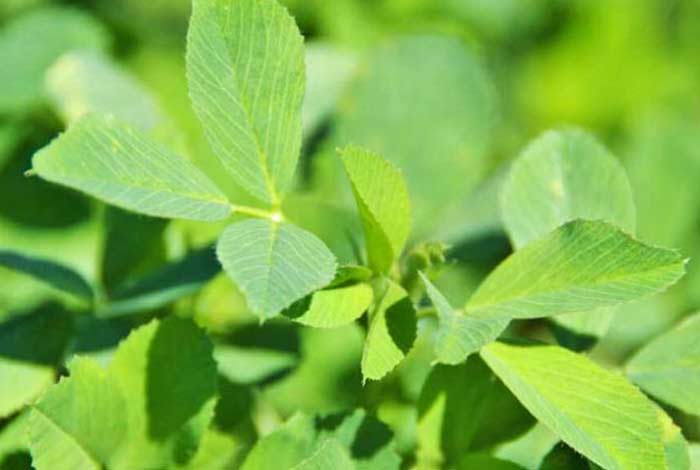
6. Hibiscus
Hibiscus is an excellent source of flavonoids that help in neutralizing free radicals. This anti-oxidant properties help maintain overall health of a person and reduce cholesterol build-up in the heart arteries. Hibiscus also provide vitamin C which strengthens the immune system and prevents cold and cough, which might lead to immense chest pain. Hibiscus tea can relieve sore throat, chest pain, cough, and several other respiratory conditions such as bronchitis and pneumonia all of which can cause mild to severe chest pain.
How to use it:
- Add a handful of hibiscus petals to one and a half cup of water. Boil this mixture and for around 10-15 minutes. Strain the mixture and consume the tea. It is also beneficial to inhale the steam coming out of hibiscus tea as it helps in thinning of mucus.

7. Fenugreek
Fenugreek is well known to promote cardiovascular health and prevent angina. It is rich in vitamins such as folic acid, thiamine, riboflavin, niacin, vitamins C, vitamin A and vitamin B6, and several minerals such as potassium, copper, selenium, calcium, iron, manganese, zinc, and magnesium. Its anti-oxidant properties reduce the cholesterol level and promote smooth blood flow towards the heart.
How to use it:
- Add one teaspoon of fenugreek seeds to around one and a half cup of water. Boil this mixture for around five minutes. Strain the mixture and add two teaspoons of honey to it. Consume the mixture to relieve the chest pain.
- Soak a teaspoon of fenugreek seeds in water overnight. Consume these seeds along with the water on an empty stomach, next morning. This would prevent angina and reduce cholesterol levels in blood.
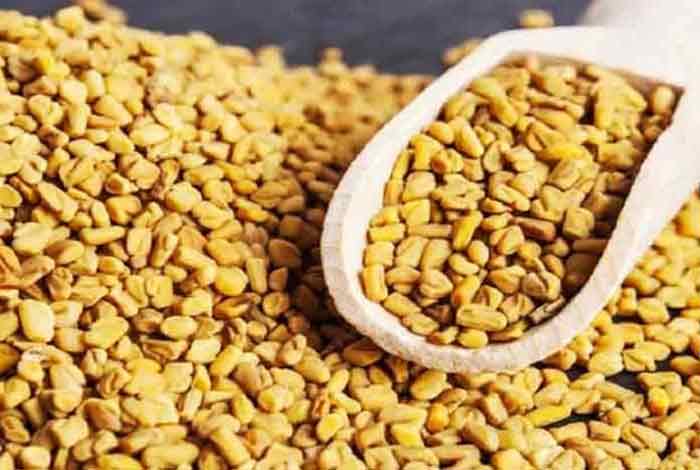
8. Pomegranate
Several clinical and laboratory studies have shown that pomegranate helps in preventing cardiovascular diseases. It reduces the oxidative stress by supporting the activity and synthesis of nitric oxide. Further, pomegranate stops the oxidation of low-density lipoprotein (LDL).
It also prevents atherosclerosis which causes heart strokes, heart attacks and plague build-up. Pomegranate juice has both anti-oxidant and anti-inflammatory properties that prevent several cardiovascular diseases and angina. Consuming pomegranate juice daily helps in promoting smooth blood supply to the heart and prevents plague build-up in the arteries.
How to use it:
- Grind pomegranate seeds using a food processor or a blender. Sieve the juice from the crushed material. Add water to this juice. Consume this juice two to three times a day.
- Consume pomegranate seeds by adding them daily to salads, sprouts, etc.
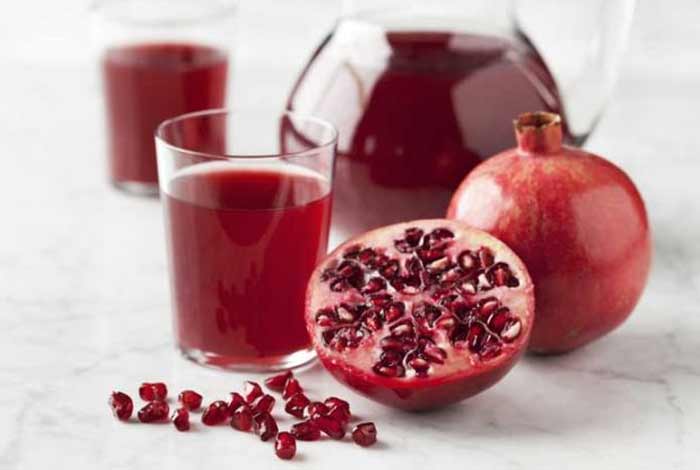
9. Licorice Root
It has been long used in various traditional medicines including Ayurvedic, native American, European for treating several ailments such as heartburn, cough, diarrhea, fever, angina and stomach aches. Licorice contains plant estrogens and flavonoids that make it an excellent herb with many medicinal properties. It also has a chemical compound known as glycyrrhizin which prevents the breakdown of several adrenal hormones such as cortisol. These hormones combat stress. Licorice root helps in preventing coronary artery diseases and enhancing cardiovascular health, thereby preventing angina.
How to use it:
- Add licorice root to a glass of water and boil this mixture. Remove the pan from the stove and let it steep for around five minutes. Strain the licorice tea and consume it around two to three times a day.
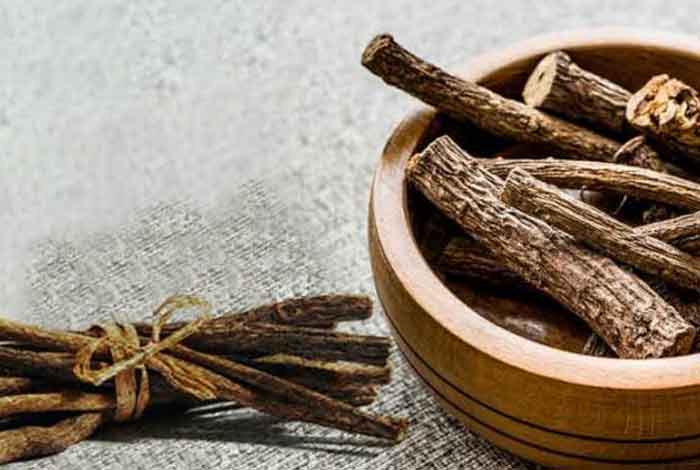
10. Omega-3 Fatty Acid
These are the essential fats that body needs, but these are not produced by the body. These fatty acids can prevent the coronary heart disease (CHD) and also slow down the progression of CHD in people who already have it. Coronary heart disease leads to plaque build-up in the coronary arteries, thereby hampering the blood flow towards the heart. Excess plague build-up can cause angina and might even lead to a heart attack. Consuming saturated fats regularly may increase triglycerides and cholesterol, thereby causing CHD. However, people who regularly consume omega-3 fatty acids have less chance of developing CHD. Omega-3 fats also have anti-inflammatory and anti-oxidant properties.
Naturral Ways for Night BlindnessHow to use it:
- Consume around two to three servings of fatty fish such as albacore tuna, mackerel, trout, bluefish, salmon, sardine and herring each week.
- Certain vegetarian sources of omega-3 fatty acids are chia seeds, flaxseeds, walnuts, olive oil, winter squash, tofu and soybean.
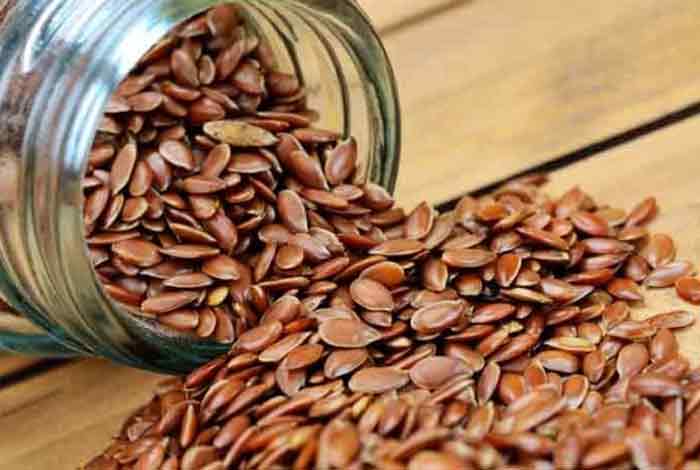
11. Meditation and Yoga
These are very effective in relieving and preventing angina. Meditation increases the blood flow to the heart and relieves angina. It also reduces anxiety and stress which might be cause angina due to underlying heart condition. Meditation gives a soothing and calming effect to the body. Meditation and yoga provide overall health benefit to a person.
How to do it:
- Sit in a comfortable position while having angina.
- Take a deep breath through the nose and exhale through the mouth.
- Focus on anything that gives happiness and content.
- Practice this deep breathing until the pain is gone.
Indulging in any kind of physical activity or yoga for around 30 minutes a day help in preventing several cardiovascular diseases and angina.






